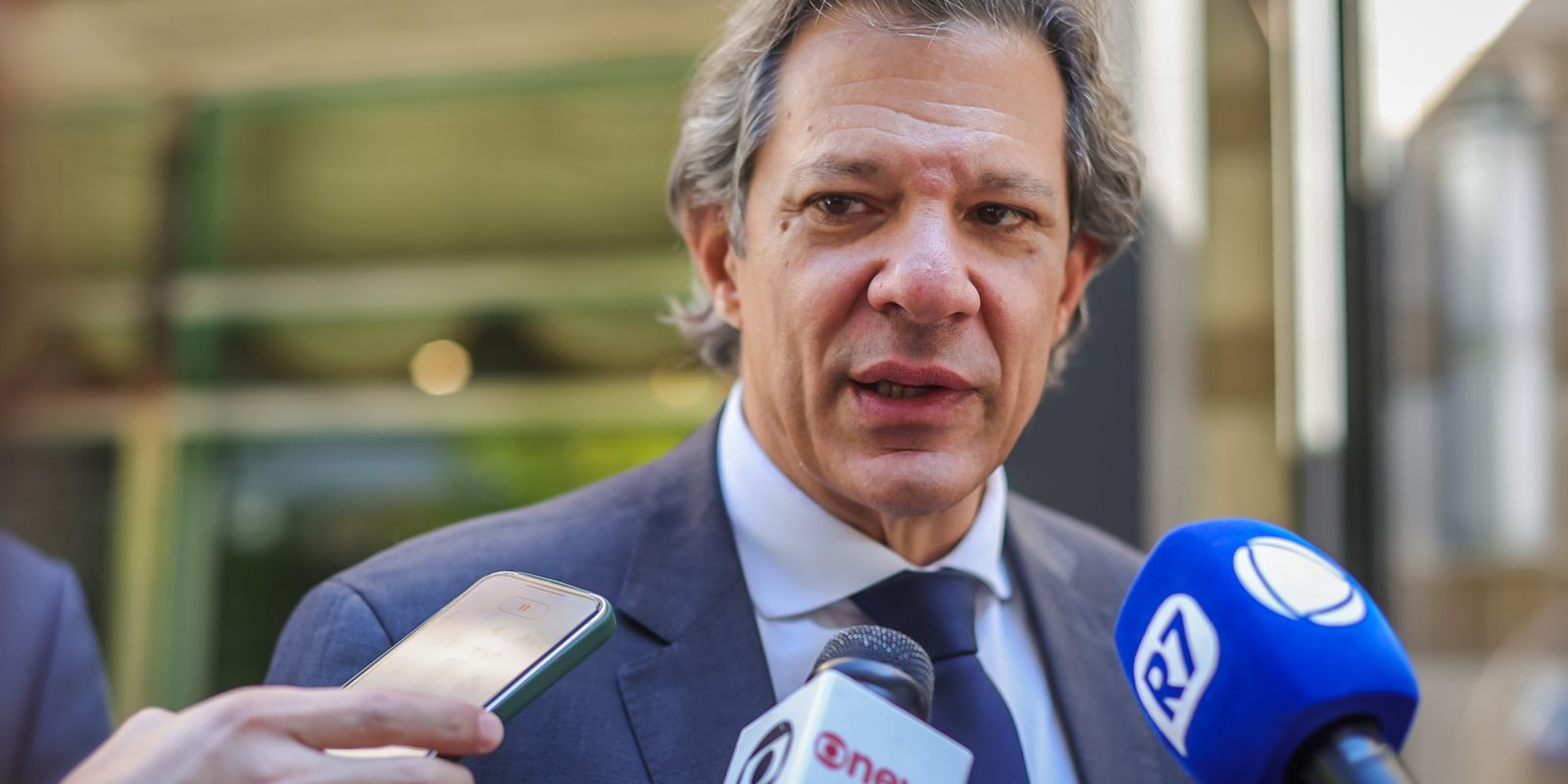THE fundraising record recorded in September is mainly due to the recomposition of the fiscal base, through the end of aid measures for the richest layers, said this Tuesday (22) the Minister of Finance, Fernando Haddad. On a trip to Washington, the minister refuted the allegations in a report by the International Monetary Fund (IMF) that the country is growing because of fiscal stimuli.
“We are going to restore the tax base. Especially because inherited expenses for which there was no source of financing have to be paid,” said Haddad. At the end of last year, Congress approved measures that have boosted revenue this year, such as the taxation of offshores (investment companies abroad), the anticipation of Income Tax on exclusive funds and the end of benefits such as subsidy (subsidies) for the cost of large companies.
According to Haddad, increasing revenue will be important to ensure compliance with the target of zero primary deficit, while the government seeks to contain spending. “At the same time as we restrict expenditure, which must fall as a proportion of GDP, if GDP continues to grow above 2.5%, which is the ceiling of the fiscal framework, that is our objective,” he added.
This Tuesday, the IRS announced that federal revenue in September totaled R$203.17 billionbreaking a record in values adjusted for inflation. Compared to September 2023, the result represents an increase of 11.61% above inflation.
From January to September, the tax authorities also recorded record collections. In the first nine months of the year, revenue reached R$1.93 trillion, an increase of 9.68% above official inflation according to the Broad National Consumer Price Index (IPCA).
IMF
Haddad and the other ministers from the economic team travel to Washington this week for the annual meeting of the International Monetary Fund (IMF) and the World Bank. At the same time, the finance ministers and presidents of the Central Banks of the G20, a group of the 19 largest economies on the planet, plus the European Union and the African Union, will hold the fourth meeting of the group’s financial track.
The Minister of Finance commented on the new IMF reportwhich raised the growth projection for the Brazilian economy in 2024 from 2.1% to 3%, but lowered the estimate for 2025 from 2.4% to 2.2%. Haddad refuted the Monetary Fund’s allegations that one of the The reasons for the strong expansion of the Brazilian Gross Domestic Product (GDP) are fiscal stimulus (increase in public spending).
“THE deficit [primário] from last year [ofR$23054billionwasduetothepaymentofthepreviousgovernment’sdefaultandisthreetimestheamountscheduledforthisyearHoweverthisyear’seconomyisgrowingmorethanitgrewlastyear”declaredtheminister[deR$23054bilhõesdecorreuemfunçãodopagamentodocalotedogovernoanterioreétrêsvezesoprogramadoparaesseanoNãoobstanteaeconomiadesteanoestácrescendomaisdoquecresceunoanopassado”declarouoministro
According to the minister, the country’s growth is occurring in a sustainable manner, and the country is capable of continuing on this path. “This review at the end of the year shows that the Brazilian economy is growing with controlled inflation, it is a sign that we have sustainable growth potential, which is not something that will happen this year and will soon stop. We have all the conditions to continue growing”, he concluded.
Change of agenda
Haddad’s first day of travel to Washington was marked by a change in schedule. At the request of the White House, the minister, accompanied by the future president of the Central Bank, Gabriel Galípolo, and the ambassador to the United States, Maria Luiza Viotti, met with the director of the White House Economic Council, Lael Breinard. The meeting discussed bilateral relations and G20 agendas, where Brazil and the United States oppose the Brazilian proposal to tax the income of the super-rich.
Because of the meeting at the White House, the meeting that Haddad and Galípolo would have with representatives from the risk rating agency Fitch was cancelled. In September, on the sidelines of the United Nations General Assembly, Haddad and President Luiz Inácio Lula da Silva had met with representatives from the two other main agencies, S&P Global and Moody’s. Days after the meeting, the Moody’s raised the Brazilian government’s debt rating.


















